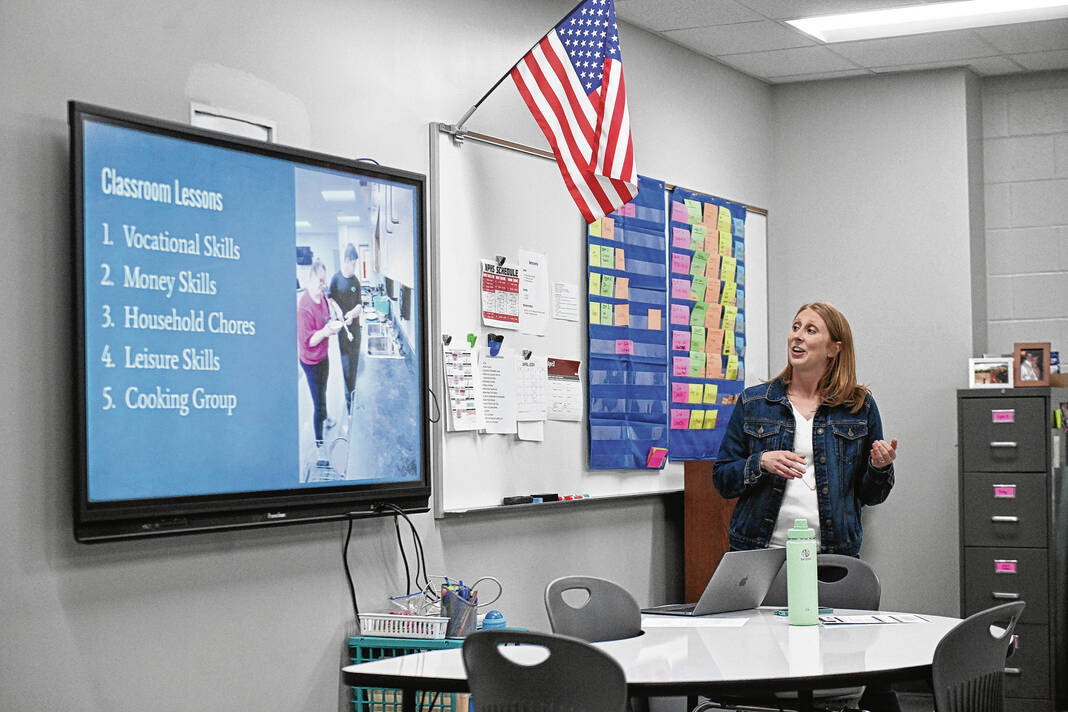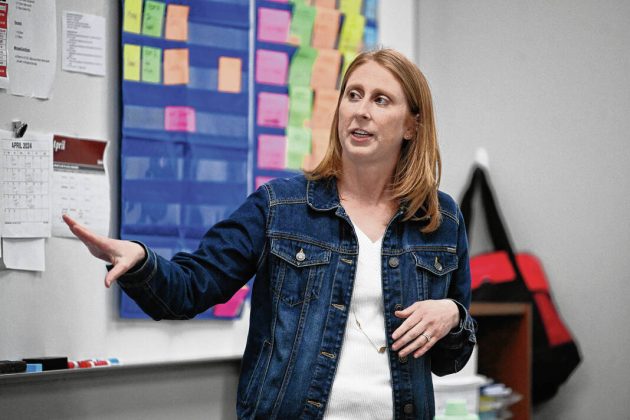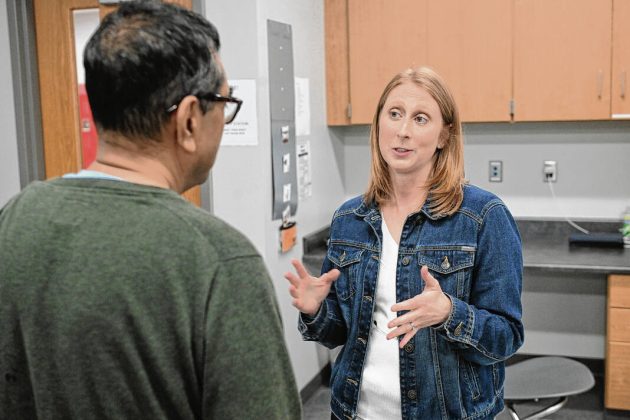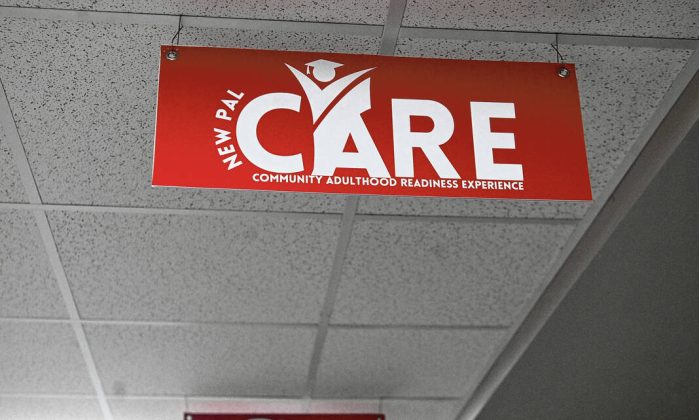NEW PALESTINE — Educator Cara Fisher Westerman stood at the front of the classroom at New Palestine High School and explained how the district’s Community Adulthood Readiness Experience (CARE) program works.
Several parents, students and district officials listened as Westerman said her end game for the program is to help students who have educational challenges find real opportunities once they leave the CARE program when they turn 22 years old.
“This is a pretty amazing program for the kids,” Westerman said. “We started with a plan and proposal, and after a trip to California where we got some great ideas for our program, I researched and visited schools that had a program for 18 to 22 year old students.”
For parents who have children with educational challenges the district offers educational opportunities for elementary aged kids at Brandywine Elementary. The students then go at New Palestine Intermediate and New Palestine Junior High before the children head to New Palestine High School for four year where they take essential skills classes as well as attend general education classes.
Following graduation from NPHS, students who are not quite ready for real-world experiences have the option to move onto the CARE program, currently housed at NPHS.
The district’s CARE program is open to all 18- to 22-year-old young adults who have already graduated from high school but need a few more years of focused learning to better prepare them for real work experiences.
“I’m so excited to see where the CARE program is going,” Westerman said. “The first year it was kind of slow but now we’ve really taken off and I can see the growth continuing throughout the years.”
Westerman shared what the CARE program is all about Wednesday evening with families who are in the program or might be interested in getting involved. Some of the classroom lessons Westerman noted include teaching the young adults vocational skills, money skills, how to do household chores, leisure skills and how to prepare meals as part of their cooking group.
“We’ve started a chore of the month, and last month we focused in on the kids doing laundry,” Westerman said. “This month we’re learning how to wash dishes, load them into dishwasher and how to dry them.”
While learning all the essential skills is a priority, Westerman also takes the young adults into the community so they can get real-world experiences like going shopping or learning how to order food at a restaurant.
“We’ve also gone to clothing stores and done some fun scavenger hunts,” Westerman said. “We give them a real budget.”
However, her main focus as of late has been to develop work-based partnerships in the community which allow the young adults to actually go out into the community and learn work skills by working at places like a local flower shop, Smokin Barrel BBQ and now the New Palestine Wellness Center.
At the Wellness Center, the young adults are learning how to be assistants in the exercise arena and take lessons on how to work the equipment.
New Palestine Community Schools Public Relations Director Craig Smith noted Westerman is a person who has found her passion, helping young adults acclimate from high school to the workforce.
“What you’ll see with the CARE program and what Cara has done is constantly have the kids out in the community,” Smith said. “They practice in the classroom, but the application is in the real world.”
Westerman started her career as a job coach for kids who went to college, but saw a need for students to have more direction so she went to Xavier University and earn a teaching degree as well as her masters.
“That’s when I decided I needed to be a teacher,” Westerman said. “What I do now, it’s a very rewarding job and I’m hoping the other districts follow suit and we can all work together on this kind of opportunity for kids.”
As a community leader, school board member Jon Hooker attended the presentation to see how the program is developing. He also attended because he has a daughter who is currently an essential skills student at NPHS. She will more than likely head to the CARE program once she graduates high school.
“I think just having the opportunity for these kids, having someone in the district speaking up for these kids and looking in the community for more opportunities for them is great,” Hooker said. “We do that for our other population of students looking for those work opportunities and we’re doing it for these kids too.”
From a parent’s perspective, Hooker noted his daughter is 18 and most of her friends will be going to college, and he’s glad she’ll have an opportunity to continue her education, too.
“Now she’s got an option,” Hooker said. “We’ve got to figure out as a school board how we support this and find them their own real space.”
The new main CARE classroom is located across the hall from the essential skills room area giving the older students their own place to work and learn so they won’t feel like they are in still in high school.
“We want the kids to graduate in four years and feel like this is a real adult program,” Westerman said.
Westerman has been working with essential skills students in the district for nine years when the countywide program disbanded. She’s also taken on the CARE program because she knows how successful the students can be.
“I want the community to see how well these students can work in our community and see how amazing they are,” Westerman said. “These kids can be great contributors to society.”








